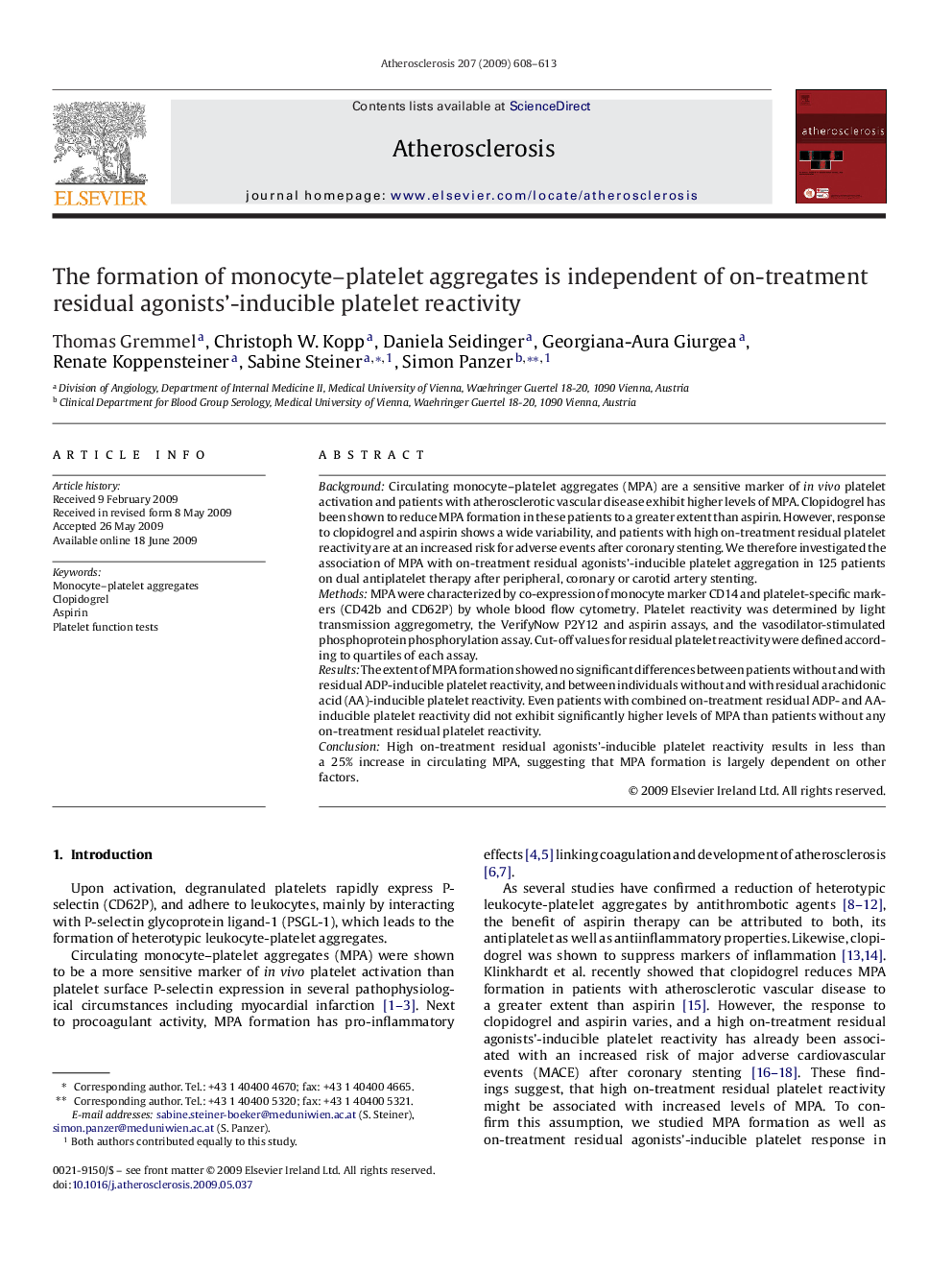| کد مقاله | کد نشریه | سال انتشار | مقاله انگلیسی | نسخه تمام متن |
|---|---|---|---|---|
| 2893400 | 1172412 | 2009 | 6 صفحه PDF | دانلود رایگان |

BackgroundCirculating monocyte–platelet aggregates (MPA) are a sensitive marker of in vivo platelet activation and patients with atherosclerotic vascular disease exhibit higher levels of MPA. Clopidogrel has been shown to reduce MPA formation in these patients to a greater extent than aspirin. However, response to clopidogrel and aspirin shows a wide variability, and patients with high on-treatment residual platelet reactivity are at an increased risk for adverse events after coronary stenting. We therefore investigated the association of MPA with on-treatment residual agonists’-inducible platelet aggregation in 125 patients on dual antiplatelet therapy after peripheral, coronary or carotid artery stenting.MethodsMPA were characterized by co-expression of monocyte marker CD14 and platelet-specific markers (CD42b and CD62P) by whole blood flow cytometry. Platelet reactivity was determined by light transmission aggregometry, the VerifyNow P2Y12 and aspirin assays, and the vasodilator-stimulated phosphoprotein phosphorylation assay. Cut-off values for residual platelet reactivity were defined according to quartiles of each assay.ResultsThe extent of MPA formation showed no significant differences between patients without and with residual ADP-inducible platelet reactivity, and between individuals without and with residual arachidonic acid (AA)-inducible platelet reactivity. Even patients with combined on-treatment residual ADP- and AA-inducible platelet reactivity did not exhibit significantly higher levels of MPA than patients without any on-treatment residual platelet reactivity.ConclusionHigh on-treatment residual agonists’-inducible platelet reactivity results in less than a 25% increase in circulating MPA, suggesting that MPA formation is largely dependent on other factors.
Journal: Atherosclerosis - Volume 207, Issue 2, December 2009, Pages 608–613